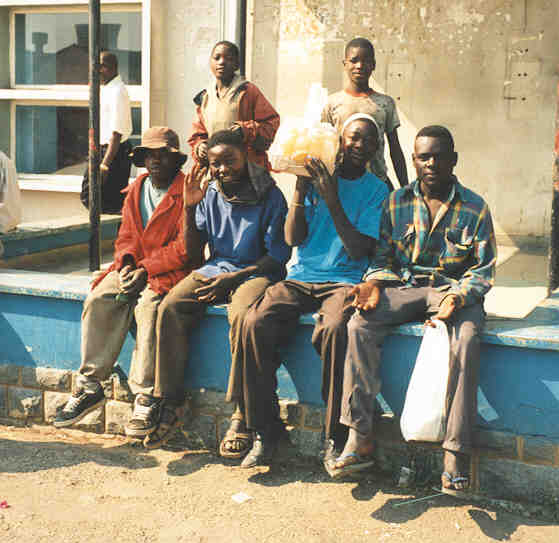
(My experience of) Streetkids in Zambia

Many tens of thousand, was one estimate as to the number of streetkids in Zambia. It is hard to quantify exactly. But what is certain, is that the number is horrifically high and still increasing, and a large proportion are 'resident' in Lusaka. And in a country with as scant (and enequally divided) resources as Zambia, this is a problem which cannot be left to be ignored.
The Waddington streetkids project is a home set up by the Anglican Church in Lusaka, in an attempt to attend to Zambia's growing population of neglected youth. In Lusaka, it is one in only a limited number of streetkids projects that are underway, all of which are potenetially oversubscribed many many times. Its plans have to be for expansion; its market demands it.

Whilst on my year out (1997-8) after university, I got involved with this project once a week. We went along and ran games and activities for the kids, anything we could think of to possibly enrich their lives out of school time. The kids' home and lives are pretty basic.
Fond memories from this time are great in number and too numerous (and probably too boring) to list here. But one case I feel I should mention. The first time I met young Mansa and his brother sticks in the mind. These two boys, 5 and 7 years of age, had been picked up at Lusaka Railway Station, abandonned. They had been put on a train by relatives in Luapula district to 'reunite' with their mother who (apparently) was somewhere in Lusaka. They were so young and scared they couldn't even remember their names or the name of their village. They had been brought to the project in a mute, wide-eyed state, but to witness the development in their characters in only a week woiuld have been enough to make even a (S.African) rugby prop go soppy and weak at the knees. Other memories were not so positive, like returning after Christmas to discover Humphrey had run away and then he hed refused to come back, favouring the freedom and independence of the street life.
Another project working with streetkids, but actual homeless ones, was run by Lusaka Baptist Church. This has a soup-run, which takes food out to homeless streetkids one night a week. For anyone, attending this project would be a real eye-opener. It aims to give streetkids from one small area a balanced meal, and sound spititual feeding too. The soup-run was in its infancy in 1998 and typically attracted 15-30 kids, nearly always boys. Latest reports (mid 1999) suggest 80-100 now gather. The baptist church also has a vision to one day set-up its own streetkids home, although as far as I know this is still in the planning stage.

The streetkids in Lusaka are certainly numerous, and quite obvious once you learn to recognise them. The 100% homeless kids are mosly boys, aged up to 18 (what are they when they they are older?), mostly above 10, many of which come down to Lusaka from the Copperbelt region. They are generally friendly and often high-spirited (sometimes thanks to solvents) with little apparent care for their long-term future (as if they had a choice?). They live off petty favours (looking after cars, pushing stalled taxis, portering, loading buses, begging, etc.) and often don't have the immediate appearance of poverty. Very rarely are they criminal (never in my limited experience), in fact they once rescued me from a pick-pocket. But who knows what may happen to them in the future if they don't receive the education, care and attention they need?
Zambia and its streetchildren need support, and they need it urgently and immediately. If the problem is generally overlooked and not given extra attention, the country won't collapse under the strain. But it will suffer in the long-term. The future effects will become harder to reverse, and exponentially greater resources will be required as time goes by. And shouldn't all children world-wide have the right to the basic requirements of food, education, a home and care?
